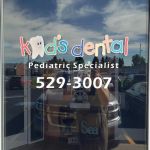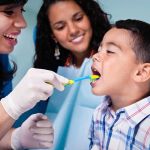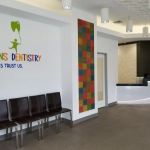
Introduction
An increasing number of elderly individuals are facing challenges related to oral health. As one ages, the natural wear and tear of teeth, coupled with systemic health issues, often lead to a heightened risk of oral diseases. In the United States, where the aging population is expanding, there is a critical need to address these oral health concerns effectively. According to recent studies, oral diseases significantly affect the quality of life among seniors, often resulting in pain, discomfort, and even social isolation. Hence, it's crucial for this demographic to adopt preventive measures and effective management strategies to maintain good oral health. This article aims to explore the common oral diseases affecting the elderly and to provide comprehensive guidance on prevention and management, all informed by resources from Dentistry Toothtruth.
Understanding Common Oral Diseases in the Elderly
Among the elderly, several oral diseases are prevalent. Dentistry Toothtruth lists conditions such as tooth decay, gum disease, and oral cancer as primary concerns. Tooth decay, for instance, is exacerbated by reduced saliva production, a common issue in seniors due to medication or systemic diseases. Gum disease, or periodontal disease, affects the gums and can lead to tooth loss if untreated. Moreover, regular dental screenings are crucial as the risk of oral cancer increases with age. Early detection of these conditions is instrumental in effective management.
Prevention through Proper Oral Hygiene Practices
Good oral hygiene is the cornerstone of preventing oral diseases, particularly in the elderly. Brushing twice daily with fluoride toothpaste and flossing at least once a day can drastically reduce the risk of plaque buildup and gum disease. Regular dental check-ups are vital to monitor oral health and to receive professional cleanings and advice tailored to individual needs. Dentistry Toothtruth emphasizes the role of caregivers in facilitating these practices, especially for those with reduced dexterity.
The Role of Nutrition in Oral Health
Nutrition plays a significant role in maintaining oral health in seniors. A balanced diet rich in vitamins and minerals can strengthen teeth and gums. Calcium and vitamin D are particularly important for bone health, including the jawbone. Limiting sugar intake can prevent tooth decay, while staying hydrated helps maintain saliva levels. Nutrition education, as suggested by Dentistry Toothtruth, should be an integral part of any oral health program for the elderly.
Impact of Systemic Health on Oral Diseases
Many systemic health issues common in the elderly, such as diabetes and cardiovascular diseases, can exacerbate oral health problems. Diabetes, for example, increases the risk of gum disease due to its impact on blood sugar levels and healing capabilities. Understanding the links between systemic conditions and oral health can lead to more holistic treatment plans. Regular communication between healthcare providers and dentists is key to managing these interconnected issues effectively.
Overcoming Barriers to Dental Care Access
A significant challenge in managing oral diseases among the elderly is the accessibility of dental care. Physical limitations, transportation issues, and financial constraints often prevent seniors from receiving adequate dental services. Innovative solutions, such as mobile dental clinics and community outreach programs, are essential to overcoming these barriers. Health policies should also be revisited to ensure that insurance plans cover necessary dental treatments for seniors, promoting equitable access to dental care.
Technological Advancements in Elderly Dental Care
Technology is playing a transformative role in enhancing dental care for the elderly. Tele-dentistry, for example, provides remote consultations and monitoring, which is particularly beneficial for those with mobility challenges. Additionally, advancements in dental materials and procedures have made treatments more effective and less invasive. Staying informed about these technologies, through resources like Dentistry Toothtruth, can help seniors make informed decisions about their dental care.
Conclusion
In conclusion, maintaining good oral health in the elderly requires a multifaceted approach that includes understanding common oral diseases, practicing diligent oral hygiene, ensuring proper nutrition, recognizing the impact of systemic health, overcoming access barriers, and embracing technological advances. By taking these comprehensive measures, seniors can significantly improve their oral health and, consequently, their overall quality of life. It's imperative for individuals, caregivers, and healthcare providers to remain proactive in these endeavors. For more detailed guidance, visiting Dentistry Toothtruth can provide additional resources and support in promoting oral health among the elderly.

 Kid's Dental
Kid's Dental Polaris Dental Care
Polaris Dental Care All Family Dental and Braces
All Family Dental and Braces Pasadena Children's Dentistry & Orthodontics
Pasadena Children's Dentistry & Orthodontics Community Medical & Dental Center
Community Medical & Dental Center Capitol Dental Center PLC
Capitol Dental Center PLC The Importance of Oral Health Education During Pregnancy for a Healthy Pregnancy
The Importance of Oral Health Education During Pregnancy for a Healthy Pregnancy Why Skipping Dental Checkups Can Lead to Bigger Oral Health Problems
Why Skipping Dental Checkups Can Lead to Bigger Oral Health Problems Advantages of Porcelain Dental Restorations
Advantages of Porcelain Dental Restorations Best Tips for Brushing Your Teeth Properly for Healthy Gums: Essential Techniques for Oral Health
Best Tips for Brushing Your Teeth Properly for Healthy Gums: Essential Techniques for Oral Health How Can Diabetes Cause Tooth and Gum Problems? Preventing and Managing Oral Health Issues
How Can Diabetes Cause Tooth and Gum Problems? Preventing and Managing Oral Health Issues Healthy Habits for Promoting Good Oral Health and Hygiene: Tips for a Healthy Smile
Healthy Habits for Promoting Good Oral Health and Hygiene: Tips for a Healthy Smile